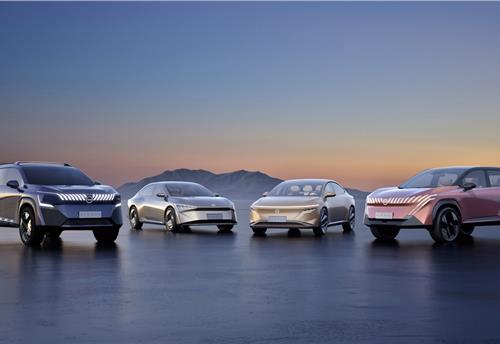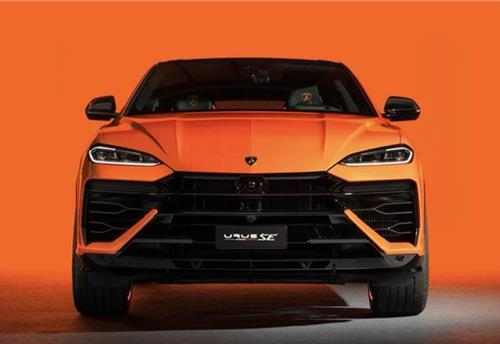JLR invests Rs 455 crore in new press line at Halewood plant
Jaguar Land Rover (JLR) has invested £45 million (Rs 455.31 crore) in a new state-of-the-art servo press line at its Halewood Operations, near Liverpool, England.
Jaguar Land Rover (JLR) has invested £45 million (Rs 455.31 crore) in a new state-of-the-art servo press line at its Halewood Operations, near Liverpool, England.
The new Servo stamping line, the first of its kind to be built in the UK, is 13 metres tall and over 85 metres long. It has a combined press stamping capacity of 7,900 tonnes, making it the fastest and one of the biggest and most powerful press lines across Jaguar Land Rover, stamping both steel and aluminium panels.
Richard Else, Jaguar Land Rover, Operations Director - Halewood, said: “This colossal new press line reinforces Jaguar Land Rover’s long term investment in UK manufacturing. Halewood is one of the most flexible, advanced automotive manufacturing facilities in Europe, producing two of the highest quality, largest selling Jaguar Land Rover vehicles to over 170 countries world-wide. This investment ensures we can make more panels, even more efficiently and will continue to do so for many years to come.”
At the end of March, Aida, the premier global manufacturer of metal stamping presses, will complete the finishing-touches to the installation. Trial pressings will commence in April and the facility will begin stamping panels for use across Jaguar Land Rover from mid-2014. By August, the facility will be up to full speed making up to 20 strikes per minute.
This servo press is the first of its type to be used by Jaguar Land Rover. Compared to the more mechanical operation of the existing Halewood presses, the direct drive servo system can handle higher tonnages in addition to working at higher speeds, allowing Halewood to increase the volume of stamped parts for use right across Jaguar Land Rover. The new line also uses less power and incorporates an energy recovery system that captures energy from the draw action and converts it into electricity.
The design of the Aida press also allows for faster die changes (the metal moulds that form the panel shapes). Changes can be achieved in under five minutes, compared to up to 55 minutes for the largest existing mechanical Halewood press line. This will improve the flexibility of the press shop, increase stamping capacity, increase speed and volume of panels that can be produced at Halewood every day.
The new press line will speed up the delivery of the required volume of pressed parts produced at Halewood. This will help to feed the body shops across Jaguar Land Rover which are working around the clock to meet increasing global demand for its vehicles.
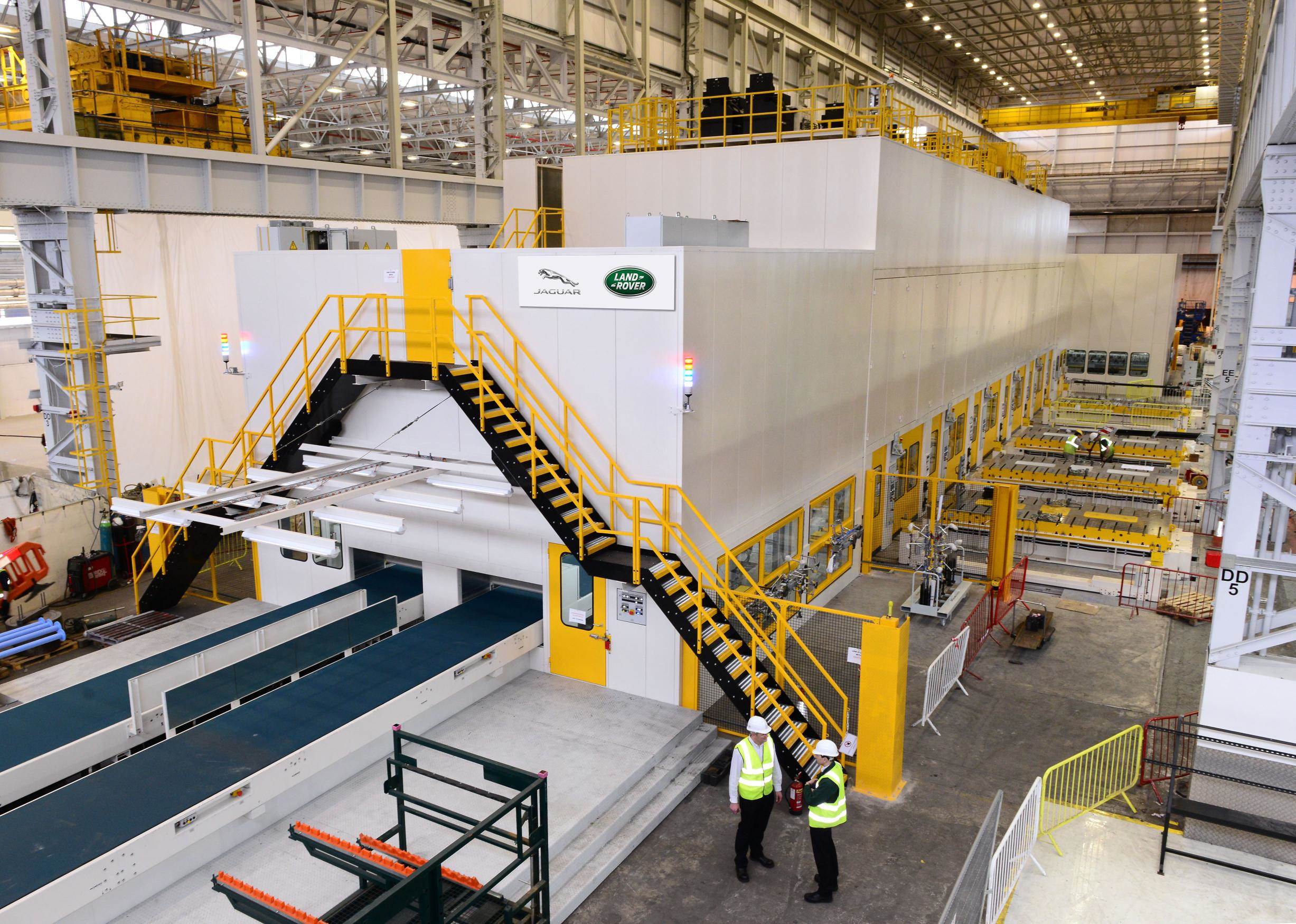
Halewood Operations manufactures the Land Rover Freelander 2 and the Range Rover Evoque. The plant is operating at full capacity, 24 hours-a-day, for the first time in its 50-year history. More than £230 million (Rs 2,327 crore) has been invested in Halewood since 2011 and Jaguar Land Rover has invested more than £3 billion (Rs 30,354 crore) in UK supply contracts linked with Evoque production. The workforce has trebled in the past three years to 4,500 and over 2200 employees have completed apprenticeships in the past two years.
RELATED ARTICLES
Kia displays EV5 and Sonet SUVs for Chinese market
Kia has unveiled a number of key models and new technologies for Chinese customers at the 2024 Beijing International Aut...
Nissan targets growth in China, unveils four NEV concepts at Beijing Motor Show
The two EVs and two plug-in hybrids are a joint effort with Nissan’s local partner Dong Feng and aimed to better address...
Lamborghini unveils Urus SE ahead of Auto China 2024
Electric-only range of 60km helps reduce emissions by 80%.





 20 Mar 2014
20 Mar 2014
 4336 Views
4336 Views



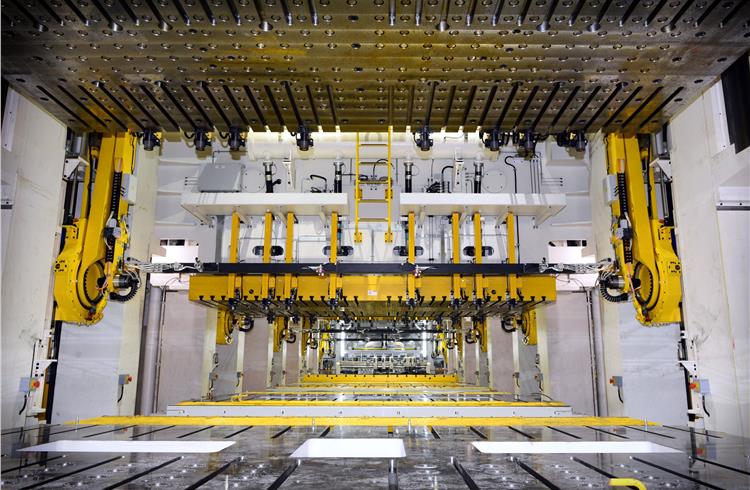
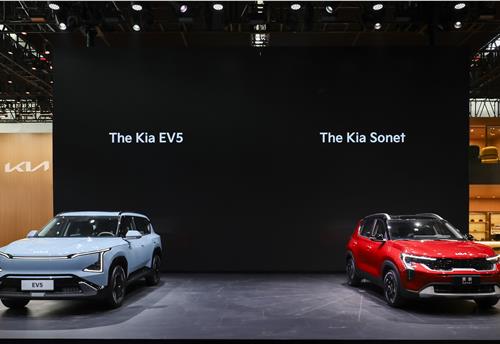
 Autocar Pro News Desk
Autocar Pro News Desk

